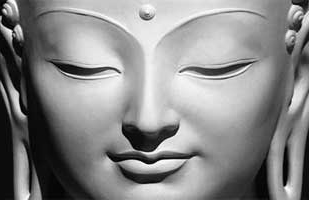
Chapter I - YAMAKA VAGGA - The Twin Verses

HAPPY ARE THE WELL-DOERS HERE AND HEREAFTER
Idha modati pecca modati katapunno ubhayattha modati.
So modati so pamodati disva kamma visuddhamattano.
Here he rejoices, hereafter he rejoices. In both states the well-doer rejoices.
He rejoices, exceedingly rejoices, perceiving the purity of his own deeds.
I:11 Happiness here and happiness hereafter (Dhammika)
Once there lived in Savatthi, a lay disciple by the name of Dhammika, who was virtuous and very fond of doing charity. He generously offered food and other requisites to holy men regularly and also on special occasions. He was, in fact, the leader of many virtuous lay disciples of the Buddha who lived in Savatthi. Dhammika had many children and all of them, like their father, were also virtuous and devoted to charity. When Dhammika was very ill and was on his deathbed* he requested the Sangha to recite the sacred suttas by his bedside. While the bhikkhus were reciting the Maha-Satipatthana Sutta he saw a vision of six decorated chariots from six celestial worlds arriving to invite him to their respective worlds.** Dhammika told them to wait for a while for fear of interrupting the recitation of the Sutta. The bhikkhus, thinking that they were being asked to stop, discontinued their chanting and left the place.
A little while later, Dhammika told his children about the six decorated chariots waiting for him. Then and there he decided to choose the chariot from the Tusita world and he passed away with happiness and confidence in his mind.
Thus, the virtuous man rejoices in this world as well as in the next.
Notes:
According to Buddhism the subsequent birth is determined by the thought process at the moment of death.
According to Abhidhamma philosophy, at this critical stage the dying person is presented a Kamma, Kamma Nimitta or Gati Nimitta which determines the next existence.
Kamma means good or bad act done during one's lifetime or immediately before the dying monment.
Kamma Nimitta or 'symbol' means a mental reproduction of any sight, sound, smell, taste, touch or idea which was predominant at the time of some important activity, good or bad, such as a vision of knives or dying animals in the case of a butcher, of patients in the case of a physician, and of the object of worship in the case of a devotee, etc.
Gati Nimitta or 'symbol of destiny' means some symbol of the place of future birth. This frequently presents itself to dying persons and stamps its gladness or gloom upon their features. If bad indications are indicated, they can at times be remedied by influencing the thoughts of the dying person. Such premonitory visions of destiny may be fire, forests, mountainous regions, a mother's womb, celestial mansions, and the like.
**Buddhists do not believe that the earth is the only habitable plane and that human beings are the only beings. Planes are numerous and beings are innumerable.

Editor for Buddha brothers: Matthew Laird Acred
If you should encounter any bugs broken links, or display errors just email us.
Buddha brothers has been running since Aug 2010 and can continue to run with your kind help!
If you love our website please donate so we can make this site even better !!